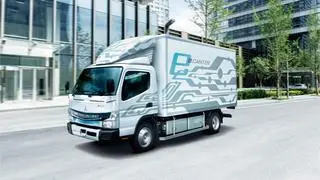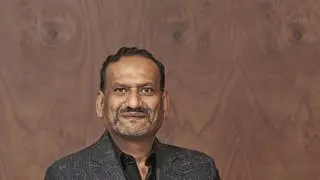Domestic auto majors on Monday urged the government to follow a practical approach in rolling out of electric vehicles, even as they cautioned that any unrealistic target will lead to collateral damage by way of job losses.
A day after the Society of Indian Automobile Manufacturers (SIAM) cautioned the government on its proposed ban on the sale of ICE (Internal combustion engine)-based three-wheelers by 2023 and two-wheelers below 150cc by 2025, top officials of the country’s leading two-wheeler companies have also expressed concerns over the government’s plan.
Venu Srinivasan, Chairman of TVS Motor Company, said there should be a gradual and seamless adoption of electric vehicles (EVs) to avoid any collateral damage, and that the technology-driven disruption must be positive and lasting.
He explained that auto-makers everywhere were supportive of the overall goal of introducing EV and easing consumers into electric mobility.
“As a result, we have been doing serious development work to ensure we can offer a mass-market EV product that delivers on safety and high performance. This is necessary to co-opt consumers into making a switch, so it’s driven by consumer willingness and, therefore, adopted easily and widely. The supporting infrastructure for charging also needs to be as robust as conventional fuel options,” he added.
However, the auto industry globally is still a long way away from making significant development. “To force an unrealistic deadline for mass adoption of electric two- and three- wheelers will not only create consumer discontent, but will also risk derailing auto-manufacturing in India, which supports four million jobs,” Srinivasan said.
Problems in execution
Rajiv Bajaj, MD, Bajaj Auto, India’s top player in three-wheelers and the third largest in two-wheelers by volumes, flagged three execution-related concerns.
“First, it may be impractical to target such a scale when none of the stakeholders currently possess any meaningful experience with any of the pieces of the EV puzzle. Second, it’s ill-timed to target a date so close to BS-VI implementation. And finally, to target two- and three-wheelers, but not cars, makes it an incomplete initiative,” he said.
“An appropriate middle path would be in the first phase to target such a changeover through implementing either Corporate Average Fuel Efficiency (CAFE) norms or EVs for all vehicle categories from a particular date, such as 2023 or 2025, starting with the most polluted cities of India,” he added.
Rajan Wadhera, President, SIAM, had indicated that India’s success story in auto manufacturing should not be affected by undue haste in banning mature automotive technologies within the next 5-6 years, in the hope that evolving EV technologies will fully replace the demand within that short period.
Such unrealistic expectations and policies would only adversely affect the world’s top two/three-wheeler industry, and also may not help in making EVs acceptable to the customer and the market, he noted.
Industry analysts had earlier indicated that government incentives, as outlined in FAME-II scheme, were targeted mostly at increasing electric penetration in the public transport and two-wheeler market.
Public transport will benefit in the short term, but it will take longer for the two-wheeler segment as it will need a period of adjustment to the new eligibility norms, they said.








Comments
Comments have to be in English, and in full sentences. They cannot be abusive or personal. Please abide by our community guidelines for posting your comments.
We have migrated to a new commenting platform. If you are already a registered user of TheHindu Businessline and logged in, you may continue to engage with our articles. If you do not have an account please register and login to post comments. Users can access their older comments by logging into their accounts on Vuukle.